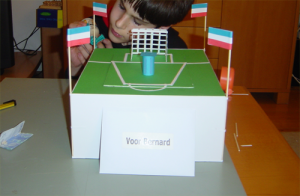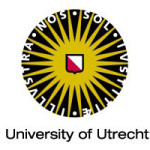
The first experimental study in Europe on Biculturalism was our study among children of Greek, or half-Greek origin who grow up in the Netherlands and were able to speak and write in both the Dutch and the Greek language
The interest of this project was focused on the cognitive abilities of those children, who grow up by constantly switching between two languages (at home between mixed parents or between home and society life). As a consequence, they are constantly dealing with the mandates of the cultures corresponding to the languages they use. How do they deal with conflicting mandates?
Experimental cognitive study
The Dutch-Greek bicultural children were randomly assigned to either a Dutch or a Greek cultural situation. In each situation they were surrounded by characteristic icons from the corresponding culture and they had also to answer questions either in the one or the other language.
Their response patterns–when in the Dutch condition–were compared with those produced by (monilingual) ‘mono-cultural’ Dutch children and when in the Greek condition with the responses of (monolingual) ‘mono-cultural’ Greek children aquired in Greece. The questions were about how strongly they endorse certain values ( e.g., family integrity, friendship, obedience to parents), how positively evaluate their personal (‘I’) self and their social (‘We’) self, or how they interprete certain social behavior of other children at school.
All tasks were based on previously established differences between the two cultures.
The study provided basic support to the the so called Cultural Frame Switching theory, namely that ‘biculturals’ are able to to develop the cognitive capacity to automatically think and respond in a way that is consistent to the demands of either active cultural context .This alternation takes place automatically and unconsciously.
In our following-up research projects we examine similar tasks among (bilingual) bicultural adult people along with factors that affect individual differences
Project staff
Katerina Pouliasi & Maykel Verkuyten

Organization: ERCOMER, Universirty of Utrecht
Output:
Our current workshops: We enrich our workshops with our scientific findings and set up a variety of situations so that participants can to test and train their potential multi-cultural competence in various domains
Findings of our research have been published in our scientific publications
and presented in international conferences or discussed in other organisations and universities.
Please share it with anyone you think they may be interested in that!